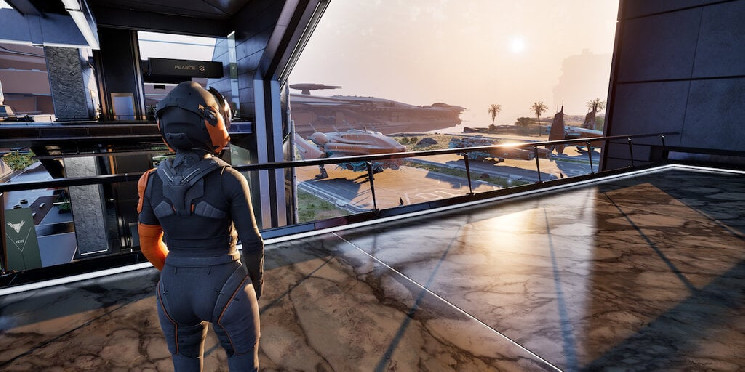Star Atlas creator ATMTA is unlocking access to its developer tools and documentation on the Solana blockchain, offering fellow game creators access to its ecosystem and economy starting with the new SAGE Labs browser-based game.
For developers wanting to take a peek under the hood of Star Atlas, the company has released a building hub where links and documentation can be found, offering free access to Star Atlas’ imagery, audiovisual assets, Unreal Engine tooling, APIs, and mainnet program IDs and addresses.
Other features include a new player profile for customized gaming, a tool to use the ATLAS token for Solana transactions instead of SOL, a system for managing token ownership and permissions, an enlistment tool for factions that other developers can use, and functions to regulate the sending of in-game tokens like ships.
The Most Anticipated Crypto and NFT Games
Star Atlas is a space exploration-themed role-playing game (RPG) built on the Solana network. ATMTA launched a “showroom” demo on the Epic Games Store in September 2022. SAGE Labs (Star Atlas Golden Era) is a browser-based game that ties into the larger Star Atlas universe.
ATMTA said that it is making its Star Atlas data publicly available in the name of transparency and fostering trust among players and stakeholders, with the aim of also creating a broader ecosystem of apps around the game.
“It’s what transforms Star Atlas from just being a set of gaming products to a development platform,” Star Atlas CEO Michael Wagner told Decrypt’s GG in an exclusive interview. “You can even commercialize using those [Star Atlas] assets.”
As Wagner explained, ATMTA requires no cut for the first $1 million worth of gross revenue for any company that uses the tools. If a company using Star Atlas’ assets and branding begins generating more than $1 million in revenue, fees ranging from 3% to 10% kick in depending on which industry or sector the company operates within.
In a release, ATMTA wrote that the tools can be harnessed to create new functionality around SAGE Labs, but it can also enable creators to spin off into new genres and experiences built around the same assets and features.
“This is also part of cultivating a flourishing ecosystem of people who want to build around Star Atlas,” Wagner added. “It effectively says that here’s a repository of assets, including branding and Star Atlas imagery, that you are free to use.”
While Wagner is optimistic about the rollout of the Star Atlas build platform and SAGE Labs, he did acknowledge that there could be hurdles to launching such public resources.
“The only potential challenge is we just get a bunch of people asking questions because they want to build something using it. Maybe they don’t completely understand it, but that’s about it,” he said. “I think this is a win. Nevertheless, it’s people coming in requiring resources from us to help get them started.”
Though Star Atlas has been hotly anticipated by the Solana community, the road to success has not been without its bumps. In July, ATMTA reduced its staff by 73%, citing market conditions and spending needs. Wagner said that as painful as it was to let those people go, it was necessary and that the Star Atlas teams’ efficiency and momentum have improved significantly. He’s optimistic about where the company is heading.
‘Star Atlas’ CEO After Massive Layoffs: ‘Nothing About Our Vision Has Changed’
“Revenues are ticking up, and we’re seeing a lot more peer-to-peer transaction volume, which helps us with our royalty fees,” Wagner said. “Sentiment in our community couldn’t be higher.”
While SAGE Labs’ build hub is intended for the Solana ecosystem, Wagner said that anyone on any blockchain can benefit from the information and tools. Using SAGE Labs, he added, anyone can build their own front-end user interface (UI) or even customize gameplay mechanics and roll out a separate product.
“If they build something that’s better, it still uses all of the Star Atlas assets; that’s how the programs are defined,” Wagner said. “And if that happens to get really popular, well, then we can just focus more of our attention on Unreal Engine. We still have to build more programs.”


